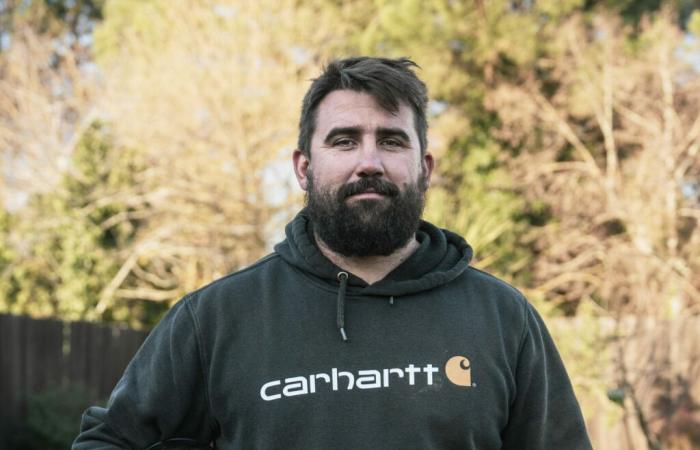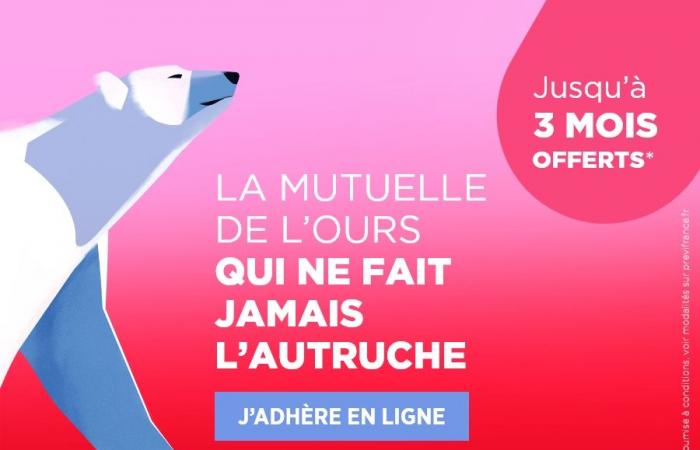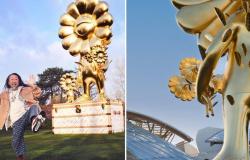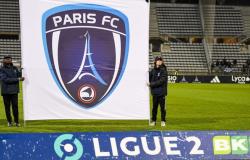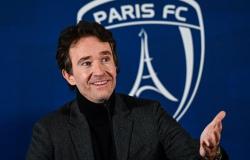Brought back to Agen by the sorcerer Broncan
Benjamin Petre: I come from Verdun, it’s not a very rugby area there (laughs). At the time, there were only two clubs in the department. This made opportunities to stand out quite rare. Fortunately, they had set up a sort of regional selection, bringing together the best players, to play against teams from bigger cities like Paris or Dijon. It was during these tournaments that I was spotted. Henry Broncan, who was very active in recruitment, asked me to join Agen while I was still in Marcoussis, at Pôle France. I was barely 18 years old. It was a big change: I left everything to come here, but I don’t regret anything.
Third line, for a few centimeters…
B.P. : I was actually third row until I was 16 or 17. But with the France Jeunes team, I was told that I was too small to continue in this position. I was then offered to either move to center or play hooker. I think I thought for a quarter of a second (laughs). I chose to become a center, and I think I made the right decision. Afterwards, that didn’t stop me from coming and trying my hand at scrum sometimes at the end of the match, it was always a pleasure (laughs).
“I bet I wouldn’t make it to the final! »
B.P. : My years with the SUA youth team were prolific, I was even French Crabos champion in 2009. I particularly remember this final against Mont-de-Marsan, which was played in Marmande. With Romain Inigo, we made a slightly crazy bet: I shouldn’t make a single pass during the entire match. I even found myself in a two-on-one situation, where instead of passing the ball, I made a pass with the foot! Fortunately, the score was largely in our favor, otherwise I would never have allowed myself to take this risk. It was a fun memory, but above all a good time before starting with the pros.
The biggest emotion with Agen?
B.P. : Surprisingly, I wouldn’t say the 2015 Top 14 accession final, which was my last match with Agen. Personally, I’m thinking more of the semi-final of the same year, against Perpignan at Aimé-Giral (32-32, victory based on the number of tries scored). Because the match just before, we host them, we lose at home, so we find ourselves playing the semi-final at their place. And so, what happens is that we win in a draw in the number of attempts, where we were all at the end of our strength, facing a hostile public. It’s one of my best matches, one of my fondest memories. Above all, we felt that there was yet another ordeal awaiting us from that moment on. It was indescribable.
“In Agen, I fell into routine and I was afraid of it”
B.P. : I left SUA in 2015 because I needed a change. In Agen, everything had become routine: even if it was pleasant, I wanted to get out of my comfort zone, not necessarily in terms of rugby, but especially outside it. We got up, we went to drink coffee in the same place, we went to training, we played cards, we went to the market, to town, to fishing, to hunting… but it was always rhythmic, it was always the same thing. I ended up falling into a routine, and I was afraid of it. I wanted to discover something else, immerse myself in a new environment and put myself to the test. Brive was a team that shared similar values to Agen. The setting was different, the people too, but it allowed me to adapt and grow. I really enjoyed the professional environment there. The first seasons of Top 14 went very well, we finished just outside the top six each time, but after that I had some injuries…
Too many injuries on the back
B.P. : It is certain that I have not been spared, but injuries are part of sport. I suffered several, some serious like cruciate ligaments or a damaged ankle which still handicaps me today. But I have no regrets. What I remember is that I always knew how to get back up, even in the most difficult times. I was able to say “stop” at the right time and look towards a future that was already planned. My history with rugby is like this, and I wouldn’t change it for the world.
“At home, Brive really has the advantage”
B.P. : I follow rugby from afar now, but I think that on Thursday evening, Brive will take over Agen. With them, it’s always difficult to win. I remember one year when we managed to beat them with Agen, but it’s rare. Brive is solid at home and plays, as expected, the leading roles in Pro D2. Agen will have to change his game, because the pitch there, even if it’s a bit synthetic, it’s not the Stade de France either. So there are not going to be big flights like Agen likes to do in Armandie. Afterwards, Brive’s game has still changed compared to what we experienced a few years ago. It wasn’t productive, it was very frontal, we’ll say (laughs). It may not be a resounding victory, but at home, Brive really has the advantage.
The little questionnaire //
Quidam Hebdo: Did a player in particular make an impression on you during your years at the SUA?
B.P. : I couldn’t just name one player. What comes back to me above all are the bonds of friendship. Guys like Marc Giraud, Alexi Balès, Mathieu Lamoulie, Alexis Vives… These are people with whom I have shared a lot of strong moments. They are players of my generation after all… More than the matches, the titles or a player for his level, it is these relationships that remain, despite the changes of clubs.
QH: What has become of you since your retirement from the rugby fields?
B.P. : As a career change, I chose to get into boilermaking. I am an industrial boilermaker, so I mainly work with metal: gates, stairs, guardrails and other metal structures. In addition to that, I also make a little furniture by mixing scrap metal and wood. I tried it during a fairly long injury period. Unfortunately, these forced stops allowed me to think about my post-career and try things out. This is how I came across this profession somewhat by chance. A club partner took me under his wing in his business. I started with a few days, then during my rest, and little by little, I developed a real interest in this field. So much so that I decided to make it my current profession. When I stopped rugby, after my last season in Albi, I came back here and followed training to improve my skills. I’ve been here for three years now. I have my workshop at home in Colayrac-Saint-Cirq, and so far, everything is going very well.

